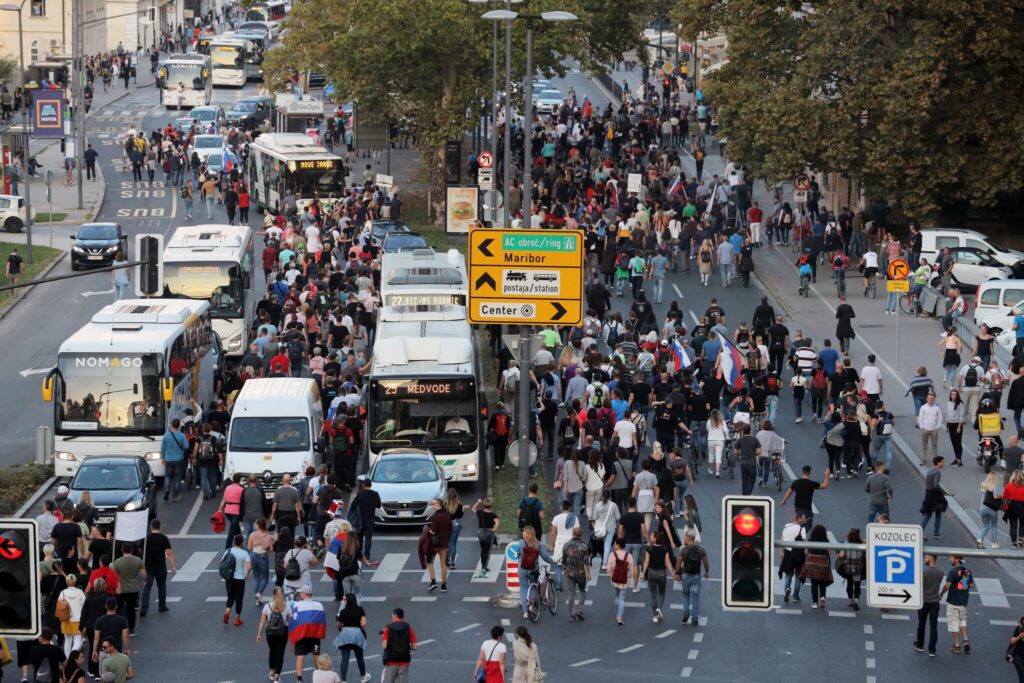The government decided to restrict or prohibit movement in Ljubljana, the lakeside resort of Bled and around the Brdo pri Kranju conference centre on Tuesday and Wednesday, citing a high probability of severe violations of public order and peace. This comes as new mass protests have been announced and ahead of the EU-Western Balkans summit.
The decision taken at a correspondence session on Monday also allows the police to prohibit accommodation in certain areas or order people to leave certain areas.
This measure is permitted by Article 9 of the police tasks and powers act and may be taken by the government on proposal of the interior minister if there is high probability of severe violations of public order and peace, the government said.
It may be in force for seven days at the most and is suspended immediately when the reasons why it has been introduced no longer exist, the press release adds.
The decision comes after a new mass protest of people opposed to the Covid pass mandate has been announced and ahead of the two-day EU-Western Balkans summit in Brdo pri Kranju, which starts with an informal dinner on Tuesday evening.
Zoran Stevanović, the leader of the non-parliamentary Resni.ca party and the informal face of the protests, has announced protests that could include blockage of roads, as this already happened last Wednesday in Ljubljana.
According to the MMC web portal of the public broadcaster RTV Slovenija, this is the first time in Slovenia’s history that the article will be activated.
Article 9 of the police tasks and powers act envisages various restrictions, in particular of movement and assembly when there is high probability of severe violations of public order and peace.
Limitations may be similar to those introduced by the government during the Covid-19 epidemic, when it prohibited movement among municipalities or statistical regions. Curfew was in force for more than half a year.
Calls for ban on organised rallies in Ljubljana have been coming from the MPs of the ruling Democrats (SDS), and Interior Minister Aleš Hojs mentioned the possibility of activating Article 9 on Saturday.
That day, a march by opponents of abortion called Walk for Life was held in Ljubljana, with a counter-rally being held at the same time. The participants of the two rallies were separated by a police cordon.
Hojs said on Twitter that the “peaceful and registered Walk for Life … could not be held as planned because of anarchists and possible violence coming from the unregistered rally that had been called by the Left. It’s time for Article 9”.
Miroslav Žaberl of the Faculty of Criminal Justice and Security told MMC that “the reason cited by the minister in his tweet certainly cannot be the reason for activating the mentioned institute”.
He added that the government had to prove high probability of severe violations of public order and peace, which means proving that the situation is so serious that the police cannot establish order without this measure.
STA


